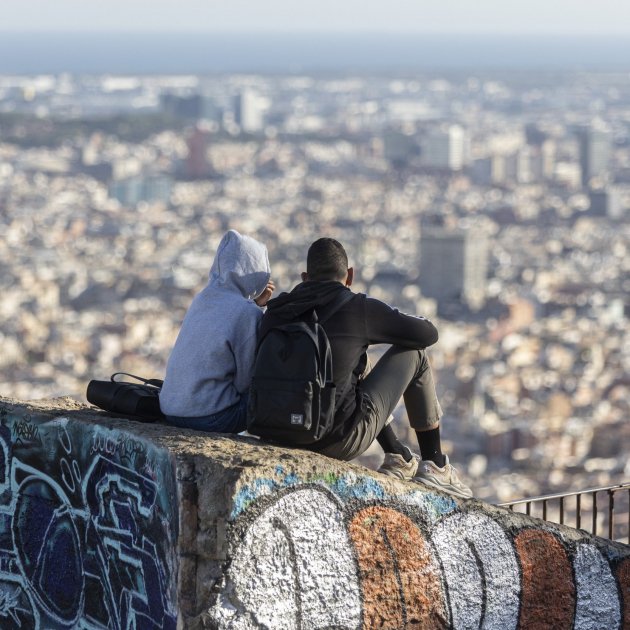After two weeks of nightly closure of the perimeter of the Turó de la Rovira hilltop - known incorrectly as the Carmel Bunkers by the crowds of tourists who filled the area every evening - the balance is "positive", according to Barcelona city councillor Rosa Alarcón (PSC). The head of the Horta-Guinardó district considers that, even if neighbourhood groups in the area have recently circulated images of crowds gathering outside the fence and of people jumping the barrier, the situation "has improved a lot". "We've gone from at least a thousand people every day to around a hundred, of which there are some who occasionally do things such as jumping the fence or drinking alcohol", Alarcón asserted in statements to ElNacional.cat.
In this regard, the councillor says that now the tendency of visitors to jump the fence and enter the summit area, which was noticed in the first few days of the closure, occurs "very occasionally and sporadically" and that the Guardia Urbana police take action to remove people and fine them. Thus, on Monday, Alarcon points out, "about thirty people" were evicted from the gun emplacements inside the fence while, in the area outsides, "seven fines were given for drinking alcohol in public". In addition, she says that the situation during the weekends "is completely unlike what it used to be" and that even the possibility of crowds spreading through the surrounding neighbourhoods and hills has been contained.
The councillor, who continues to often climb Turó de la Rovira herself, also denies that there are now crowds that occupy another nearby summit, the Turó del Carmel, and she recalls that regular bus users are beginning to "notice the change", since one of the problems caused by the influx was that the residents found bus services completely full to overflowing. "I said previously that the fence was not the definitive solution", insisted Alarcón, who announced the maintenance of police reinforcements as well as "changes in the signage ", in addition to asserting that it will take time to manage the area of the anti-aircraft gun emplacements on the Turó de la Rovira.
"Now the residents can sleep"
Despite the complaints, Alarcón maintains that she has met with all the residents and that, for the most part, they recognize the improvement: "Now the neighbours can sleep, before they couldn't", she points out, insisting on a "positive assessment" of the situation because "the measures that have been taken are starting to bear fruit". "This does not mean that it is 100 percent resolved, but we have finished with the illegal parties and the number of people going up to drink alcohol has decreased." For this reason, Alarcón has set herself the goal of ensuring that the neighbours can sleep over the summer.
